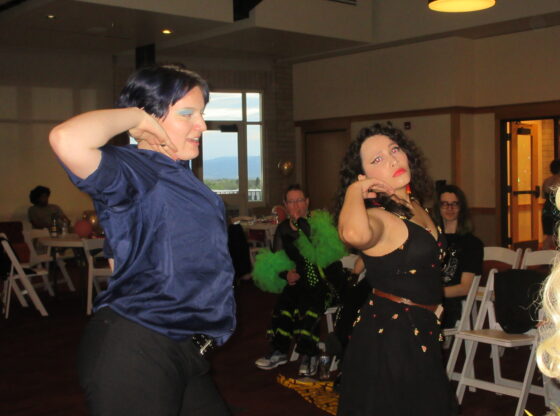Before her perfectly in-sync and riveting drumline launched into “Run the World (Girls)” at last year’s Coachella music festival, Beyoncé rose from a cloud of smoke at the top of a pyramid to say to the audience, “Coachella, thank you for allowing me to be the first black woman to headline Coachella.” As the cameras switch to the crowd of simultaneously crying and screaming fans, Queen Bey herself proclaims, “This song is dedicated to all the incredible women who opened up the doors for me… thank you so much ladies. Do we have any strong women out there tonight?”
Her words here encompass the two major themes of Beyoncé’s groundbreaking 2018 Coachella performance: feminism and Black excellence. As the main subjects of Netflix’s new top trending documentary, “Homecoming,” the performance clearly lives up to its critical praise as being one of the most historic and radical performances in the history of pop music. Written, directed and produced by Beyoncé herself, the film flawlessly splices together Weekend 1’s yellow and Weekend 2’s pink costume changes and performances. Intimate behind-the-scenes looks at the eight-month process of rehearsals also play a dynamic role in the film.
If this Coachella show proved anything, it is that Beyoncé truly is the performer of her generation. Already well known as an electrifying dancer and live singer, her position as the director and creator of this massive show further solidified her status as an icon in music and business. Beyoncé continually exceeds her standards with each show, but none of her previous statement-making performances in the past have earned their own documentary and Wikipedia page.
Though she was scheduled to headline the festival in Spring 2017, she and husband Jay-Z had an unexpected pregnancy with twins. Beyoncé’s response? Immediately after their birth, she launched into a year-long process to create the show while exercising multiple times a day, running to and from dance rehearsals and breastfeeding her newborn children. She describes her diet throughout this entire process as, “no bread, no carbs, no sugar, no dairy, no meat, no fish [and] no alcohol.”
Why was this specific performance, this year of Coachella, so important to sacrifice this much after having two children? She attributes the name, “homecoming,” to symbolize her first return to the stage after giving birth, and “instead of bringing out [her] flower crown, it was more important [she] brought our (Black) culture to Coachella.” When hearing Beyoncé explain it herself through the film’s many voice-overs, her themes of female power and Black culture are recognizable everywhere. Her own motherhood, career and personal experience has been lived through her existence as a black woman. Her identity is her message; it is the driving force of her Coachella show and her entire 22 year career.
Beyoncé, though being a wildly talented artist and producing a great number of hits, could not be where she is today without her message. While she is first and foremost a musical artist, she has surpassed that mere title to become an inspirational symbol to marginalized communities.
The show is as much about these co-performers as it is Beyoncé; her entire orchestra and all her dancers are Black. The documentary focuses in on the theme of historically Black colleges and universities, from which she recruited dancers and instrumentalists. “Homecoming” makes sure to highlight their individual stories on and off-stage, and Beyoncé extols them as having “limitless swag.” Though her music itself displays themes of black excellence, she wanted to present a visual example with over 100 people on stage.
Before singing “Bow Down,” she continually says, “Ladies… Are we smart? Are we strong? Have we had enough of the bullsh**?” The screams of the women in the crowd immediately affirm her questions. Her entire show is a testament to female empowerment, sexuality and confidence. At one point in the show, she even alters her microphone to make her voice sound like that of a man’s, rapping over a hip-hop beat to prove women can do it just as well. Her influence is incredible, and she possesses a gifted skill to appeal to the female pathos.
Late into the performance, the audience hears the famous Malcolm X quote, “The most disrespected person in America is the Black woman. The most unprotected person in America is the Black woman.” This statement still remains true today, but seeing Beyoncé march up the steps of her Coachella kingdom has a way of inspiring not only Black women but all women to demand more. Even aside from her targeted audience, any willing viewer will easily get goosebumps for two straight hours while witnessing the spectacle that is “Homecoming.” As DJ Khaled acclaimed it to be, 2018 was “Beychella.” She writes and performs a show as if she’s writing a novel or intricately sculpting marble, but her art takes the form of “Love on Top” at the Coachella Music Festival.











